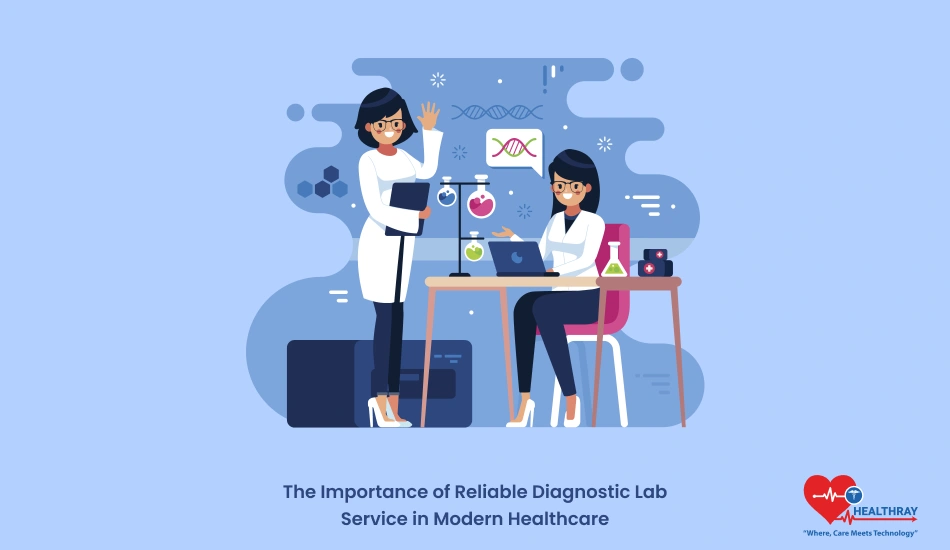Reliable diagnostic lab services are at the heart of modern healthcare. Nearly every medical decision—whether diagnosing an illness, planning treatment, or monitoring recovery depends on lab results. For patients, accurate diagnostics mean timely care. For healthcare professionals, they ensure evidence-based treatment decisions. For clinics, they build trust and optimize operations.
However, the importance of reliability in Laboratory Information Management services goes beyond individual health. It also plays a significant role in public health efforts, helping track disease outbreaks and shape effective interventions. Yet, ensuring reliability is no small feat. Challenges like technological advancements, stringent regulations, and maintaining quality standards can impact how well labs perform.
In this post, we’ll explore why diagnostic reliability is non-negotiable, the risks of inaccuracies, and how modern labs are addressing these challenges. Let’s dive into the critical role these services play in healthcare today.
The Role of Diagnostic Labs in Modern Healthcare
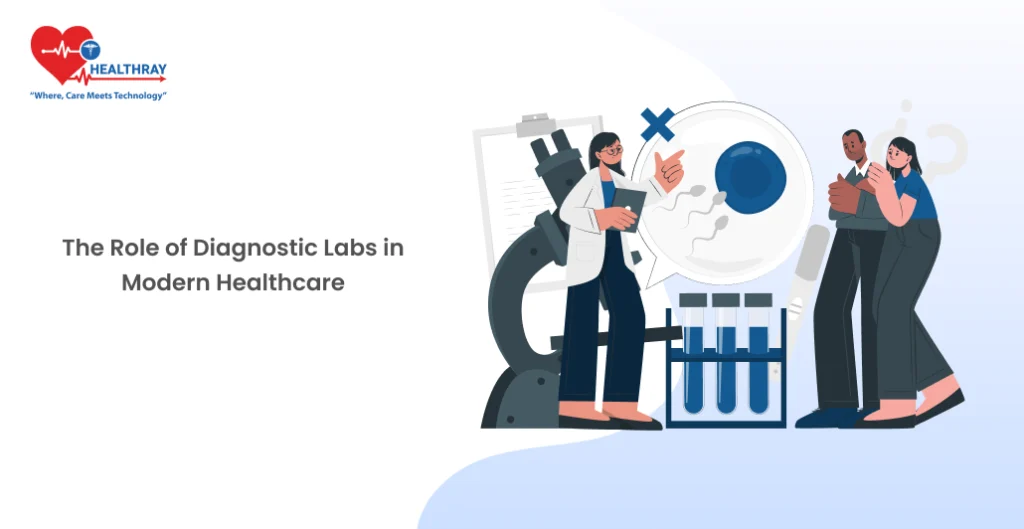
Diagnostic labs are the quiet heroes of the healthcare system. They provide the data that drives almost every major medical decision. Without the precise information they deliver, healthcare professionals would be left to make critical choices based on guesswork.
How Diagnostic Labs Impact Patients, Professionals, and Clinics
- For Patients: Imagine a patient waiting for a diagnosis. They’ve undergone a test, and now, their next steps depend on the results. A reliable lab ensures they get an accurate diagnosis, allowing them to begin the right treatment without unnecessary delays. This accuracy not only speeds up recovery but also provides peace of mind.
- For Healthcare Professionals: Doctors rely on lab results to create treatment plans. Whether managing chronic conditions or addressing sudden illnesses, diagnostic data helps them understand what’s happening in a patient’s body. The trustworthiness of this data is critical to ensuring the treatments they prescribe are appropriate and effective.
- For Clinics and Hospitals: Clinics operate like finely tuned machines. Reliable lab services keep things running smoothly. They minimize errors, reduce the need for repeated tests, and enhance operational efficiency. Ultimately, reliable diagnostics help build trust between clinics and their patients, which is vital for long-term success.
The Unseen But Vital Role in Modern Medicine
Beyond immediate diagnosis and treatment, diagnostic labs also contribute to preventative care. Regular screenings, like blood tests or imaging, help catch potential health issues early. This proactive approach can save lives, reduce healthcare costs, and improve overall patient outcomes.
Why Reliability in Diagnostic Labs Matters
The accuracy and reliability of diagnostic labs are not just technical requirements—they are the foundation of effective healthcare. Without dependable lab results, the healthcare system could falter, leading to poor outcomes for patients and inefficiencies for professionals and clinics.
The Risks of Unreliable Lab Results
- Misdiagnosis: Inaccurate lab results can lead to a wrong diagnosis. For example, a missed marker in a blood test could result in undetected conditions like diabetes or anemia. Misdiagnosis wastes precious time and might expose patients to treatments they don’t need while delaying the care they urgently require.
- Delayed Treatment: Unreliable results often necessitate retests, which delay care. Time-sensitive conditions like infections or cancers require immediate intervention. Any delay could worsen the prognosis and reduce the effectiveness of treatments.
- Increased Healthcare Costs: Errors in diagnostics often lead to repeated tests or treatments that don’t address the root issue. This creates unnecessary financial strain on patients and clinics alike. For healthcare systems, these inefficiencies can spiral into larger systemic costs.
The Benefits of Reliable Diagnostic Labs
- Improved Patient Outcomes: Trustworthy diagnostics mean early and accurate detection of diseases. This directly improves recovery rates and reduces the likelihood of complications. Patients benefit not only physically but also emotionally, as they feel confident in their care.
- Streamlined Treatment Plans: Reliable labs allow healthcare professionals to create treatment plans based on factual, precise data. This streamlines decision-making and enhances the likelihood of successful outcomes.
- Building Trust Across the Healthcare Ecosystem: Patients are more likely to trust a clinic or hospital that partners with reliable labs. This trust isn’t just beneficial for patient retention; it fosters a positive reputation for the entire healthcare network.
Challenges in Maintaining Reliability in Diagnostic Labs
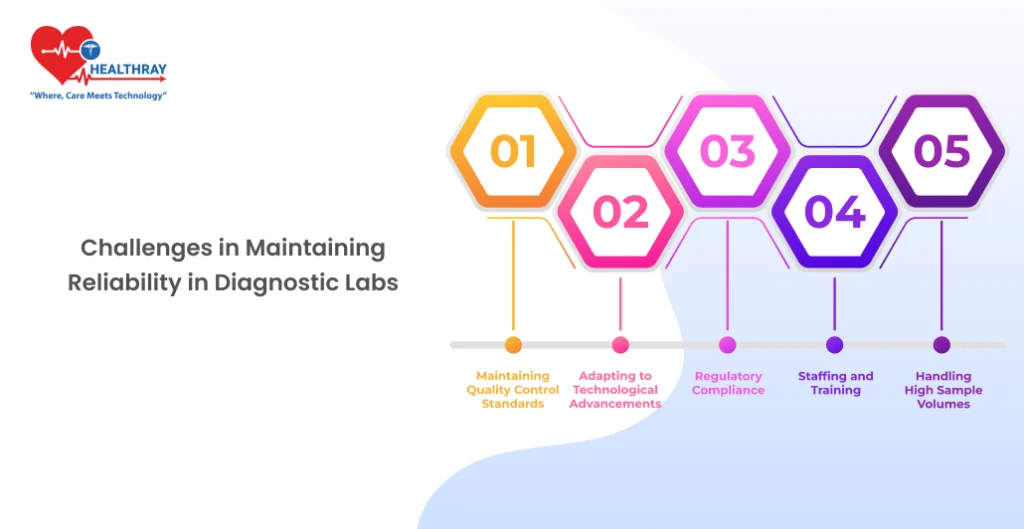
Ensuring reliability in diagnostic lab services isn’t a straightforward task. Labs face a host of challenges, ranging from quality control to technological integration. Each of these challenges, if not managed effectively, can compromise the accuracy and trustworthiness of results.
Maintaining Quality Control Standards
Quality control is the cornerstone of reliable diagnostic services. Labs are required to meet stringent standards, often set by accrediting bodies. Regular calibration of equipment, standardized operating procedures, and frequent audits are essential. However, maintaining these practices consistently can be resource-intensive, especially for smaller labs.
Adapting to Technological Advancements
The rapid pace of innovation in diagnostic technology brings benefits and challenges. While advanced equipment and automated systems improve accuracy, they require significant investment and continuous training for lab personnel. Labs must strike a balance between integrating new technologies and ensuring their teams are equipped to use them effectively.
Regulatory Compliance
Healthcare is a heavily regulated field, and diagnostic labs must comply with national and international standards. These regulations often evolve, requiring labs to adapt quickly. Staying compliant involves paperwork, additional training, and regular updates to lab protocols, which can be burdensome.
Staffing and Training
Human expertise is just as important as advanced machinery in maintaining reliability. Labs need skilled professionals who can analyze results accurately and troubleshoot issues. However, recruiting and retaining qualified staff, especially in regions with limited talent pools, is a common challenge.
Handling High Sample Volumes
In busy labs, handling large volumes of samples without compromising accuracy is critical. Overloaded systems or understaffed labs can increase the risk of errors, which can erode trust and impact patient care.
How Reliable Diagnostic Labs Benefit Public Health
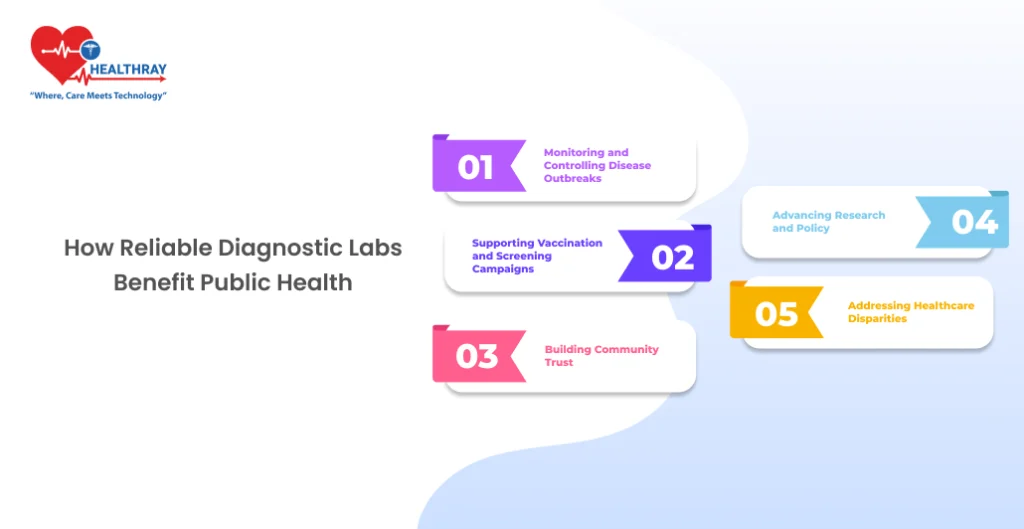
Beyond individual diagnoses, diagnostic labs play a pivotal role in safeguarding public health. Their ability to provide accurate, large-scale data is essential for managing widespread health challenges and ensuring community well-being.
Monitoring and Controlling Disease Outbreaks
Reliable labs act as the first line of defense during disease outbreaks. Accurate diagnostic testing helps identify infections early, track their spread, and assess the effectiveness of public health measures. For instance:
- During pandemics, labs process thousands of tests daily to provide real-time data on infection rates.
- Early detection of contagious diseases, like tuberculosis or COVID-19, helps prevent widespread transmission.
Supporting Vaccination and Screening Campaigns
Public health initiatives, such as vaccination drives and cancer screenings, depend on precise lab data. Reliable labs ensure that:
- Patients at risk are correctly identified and prioritized.
- Vaccines and treatments are monitored for efficacy and safety.
For example, mass cervical cancer screenings rely on dependable lab results to identify early-stage abnormalities, enabling timely interventions.
Building Community Trust
Public trust in healthcare systems hinges on reliable diagnostics. When labs deliver consistent, accurate results, communities are more likely to participate in public health initiatives, from routine testing to disease prevention campaigns.
Advancing Research and Policy
Data from diagnostic labs informs medical research and healthcare policies. Reliable data allows researchers to:
- Identify trends in chronic diseases like diabetes and cardiovascular conditions.
- Develop evidence-based strategies for health improvement. Policy-makers also use this data to allocate resources effectively and shape public health programs.
Addressing Healthcare Disparities
Reliable diagnostics help bridge gaps in healthcare access. By providing accurate and timely results in underserved regions, labs enable healthcare systems to reach vulnerable populations and address disparities in treatment.
Diagnostic labs don’t just serve individual patients—they are essential for the health and safety of entire populations. Their reliability ensures effective disease management, supports healthcare infrastructure, and fosters trust in public health systems.
Choosing the Right Diagnostic Lab
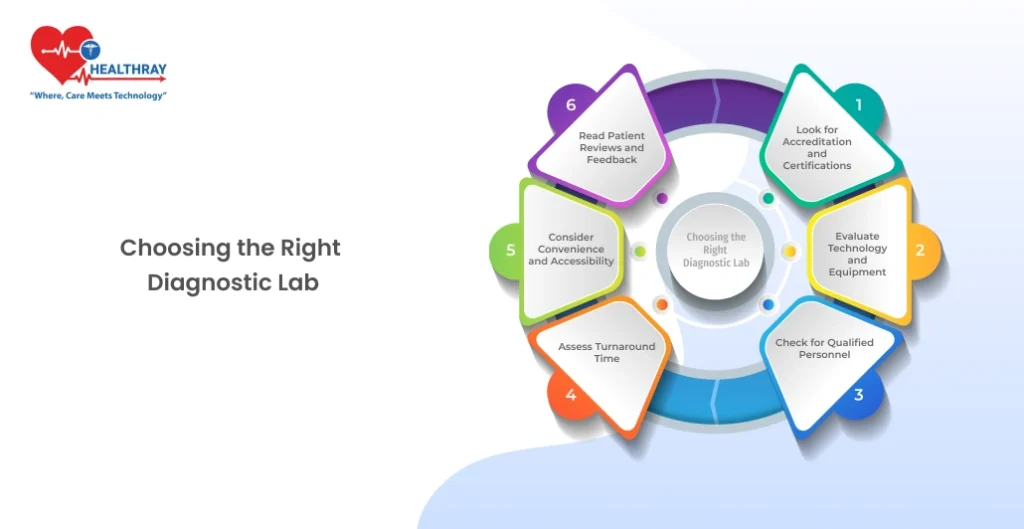
Selecting the right diagnostic Lab Management System is a crucial decision for patients, healthcare professionals, and clinic administrators. The quality and reliability of a lab’s services can directly influence diagnosis, treatment, and overall patient care.
Look for Accreditation and Certifications
Accreditation is the gold standard for reliability. Accredited labs meet stringent quality and safety standards, ensuring accurate and dependable results. Look for certifications like:
- CAP (College of American Pathologists)
- NABL (National Accreditation Board for Testing and Calibration Laboratories)
These certifications indicate adherence to rigorous quality control measures.
Evaluate Technology and Equipment
Advanced technology plays a vital role in improving accuracy and turnaround times. Ensure the lab uses modern diagnostic tools, automated systems, and software for error reduction. For example:
- Molecular diagnostics for genetic and infectious diseases, including Next-Generation Sequencing, NGS report, a advanced techniques that enable precise identification of genetic mutations and infectious agents, facilitating accurate diagnosis and personalized treatment strategies.
- AI-assisted tools for precise imaging interpretations.
Updated technology also signals that the lab invests in staying ahead of healthcare demands.
Check for Qualified Personnel
Even the most advanced tools are ineffective without skilled professionals to operate them. Look for labs with:
- Experienced pathologists and technicians.
- Ongoing staff training programs to stay updated on the latest diagnostic methods.
Highly trained personnel ensure accurate results and efficient problem-solving.
Assess Turnaround Time
Timely results are critical, especially for urgent or life-threatening conditions. Choose a lab known for delivering reports quickly without compromising accuracy. Many modern labs now provide same-day or next-day results for standard tests.
Consider Convenience and Accessibility
Patients and clinics benefit from labs that offer:
- Multiple collection centers or home sample collection services.
- Easy access to reports through online portals or apps.
These features make the diagnostic process seamless, especially for patients with mobility issues or tight schedules.
Read Patient Reviews and Feedback
Online reviews and patient testimonials provide valuable insights into a lab’s reliability and service quality. Look for feedback on:
- Accuracy of reports.
- Customer service experiences.
- Efficiency of the sample collection process.
Choosing the right diagnostic lab ensures not only accurate results but also a smoother healthcare experience. Whether you’re a patient seeking clarity, a doctor making decisions, or a clinic aiming to maintain trust, reliable diagnostics are the key to success.
Conclusion
Reliable diagnostic lab services are the backbone of modern healthcare. They ensure accurate and timely results that directly impact patient care, treatment planning, and overall healthcare efficiency. For patients, a dependable lab means peace of mind and faster recovery. For healthcare professionals, it’s the confidence of making evidence-based decisions. For clinics and administrators, reliability builds trust and keeps operations smooth.
Despite challenges like maintaining quality control, integrating technology, and navigating regulatory requirements, reliable labs continue to play a pivotal role in improving health outcomes. They’re not just about testing samples—they’re about empowering the entire healthcare ecosystem.
Whether you’re a patient seeking accurate results, a doctor striving for the best treatment outcomes, or a clinic administrator looking to improve services, choosing a reliable diagnostic lab makes all the difference. It’s an investment in health, trust, and quality care.
